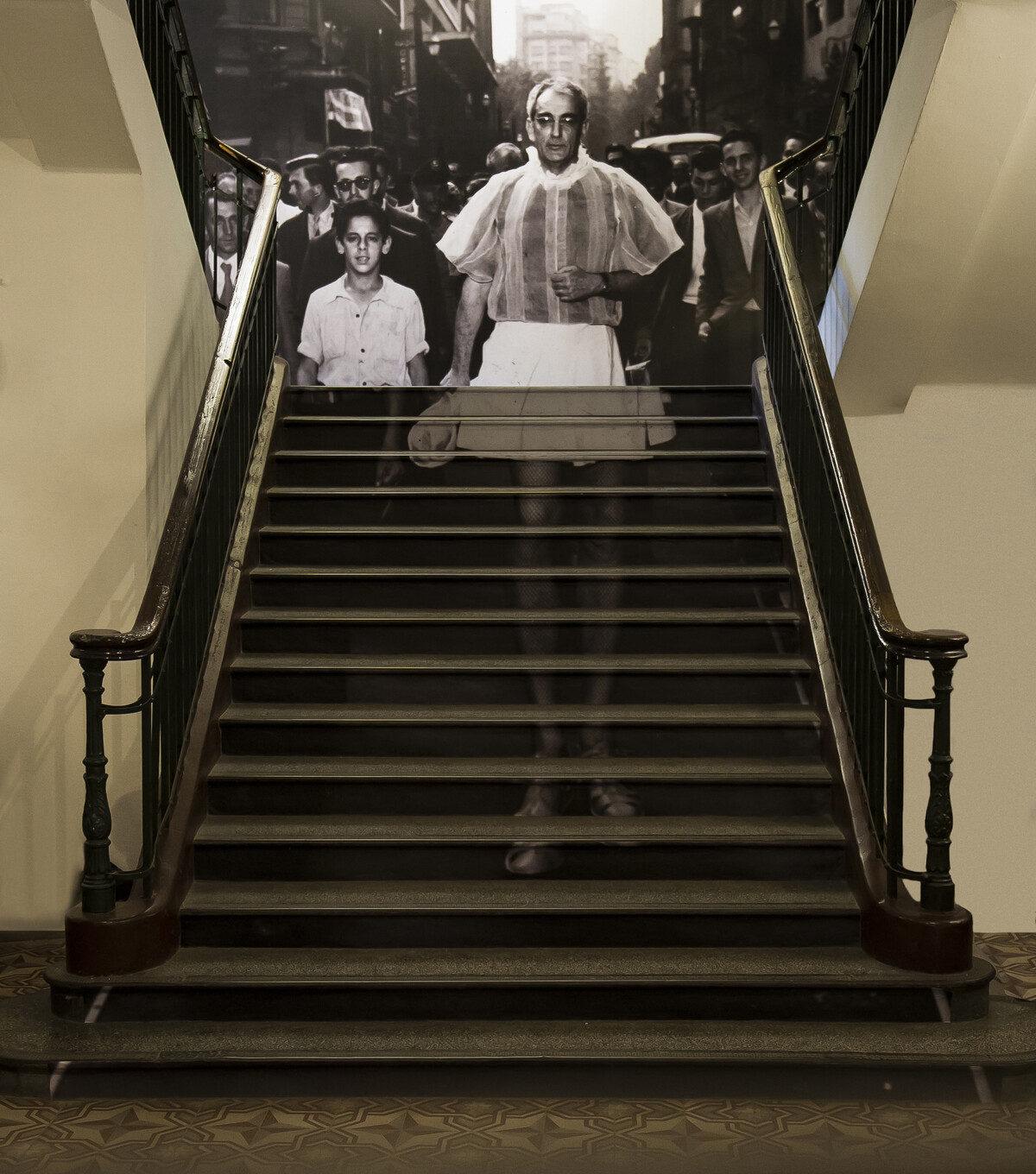October 22–November 20, 2016
Flávio de Carvalho invites you to the 3rd Istanbul Design Biennial that opens today!
De Carvalho was a Brazilian artist, designer, architect, novelist, historian and performer that challenged traditional assumptions about design and the human, as do all the other participants in this year’s design biennial, which is the biggest yet. A galaxy of designers, architects, artists, theorists, choreographers, filmmakers, historians, archaeologists, scientists, labs, centres, institutes and NGOs respond to Are We Human?, the polemical curatorial manifesto of Beatriz Colomina and Mark Wigley.
The works presented range historically from three full galleries showing huge casts of multiple 8500-year-old Neolithic footprints of the first inhabitants of present-day Istanbul, especially prepared for the biennial at the Istanbul Archaeological Museums, to anthropological displays of Homo cellular, the hybrid of human and mobile phone born in 1983, and the new forms of Design in 2 Seconds on social media. 13th century Islamic Renaissance Automata return to challenge the latest thinking about computation and the Transparent Man makes his first return trip to Istanbul since 1938. The exhibition is a kind of reunion of designs that transformed the species. Art meets science meets reflection meets speculation in a new kind of conversation about design.
The biennial thinks about the fact that the human is unique in its capacity to design but is also continuously redesigning itself in a never ending loop that flings it into the world in unexpected ways. The human is a question mark and design is simply the way of engaging with that question.
Every biennial participant scrutinizes the human from a different angle. Tacita Dean’s film Human Treasure respectfully observes a day in the life of an elderly Japanese man officially designated a “human treasure.” Unspoken by Diller and Scofidio explores Darwin’s observation that only humans blush. Institute of Isolation by Lucy McRae explores effects of extreme isolation in outer space. Martha Rosler presents South Africa: Crossing the River Without a Bridge a newly completed video on housing injustice and action based on the tapes from her time teaching and working with community groups in South Africa in 1990. Forensic Architecture considers the question whether orangutans should be granted human rights. Orkan Telhan offers a 30-day simit diet to the visitors prepared by his Microbial Design Studio, an inexpensive automated and networked countertop biofabrication machine to design, culture, and test genetically modified organisms. Leading brain scientists from the Seung Lab at Princeton University and the Zuckerman Institute at Columbia University present the latest thinking about the brain as both the mechanism of design and a plastic architecture that is redesigned even by thoughts. And so on…..
Entitled ARE WE HUMAN?: The Design of the Species: 2 seconds, 2 days, 2 years, 200 years, 200,000 years, the 3rd Istanbul Design Biennial has multiple overlapping layers in which the visitor is invited to rethink design. More than 70 projects are organized in four “clouds”: Designing the Body, Designing the Planet, Designing Life, and Designing Time. These clouds are dispersed across five venues and are punctuated by six curatorial interventions—Design Has Gone Viral, The Unstable Body, Are We Normal?, Enclosed by Mirrors, Homo cellular, and Design in 2 Seconds—prepared by the curatorial team and a joint team of Princeton and Columbia University students. The basic idea of a biennial is further expanded by 146 two-minute open call videos from 36 countries on “are we human?,” Superhumanity with e-flux presents more than 50 essays on the design of the self, and Turkey Design Chronology presents the first phase of a three-year research project by a team of more than 50 Turkey-based experts into the last 200 years of design in Turkey.
The overall effect is a kaleidoscope of artistic, technical, philosophical, theoretical, and ethical reflection on the intimate relation between “design” and “human.” The work of Flavio and more than 250 other creative minds is on display for the next month in Istanbul.



